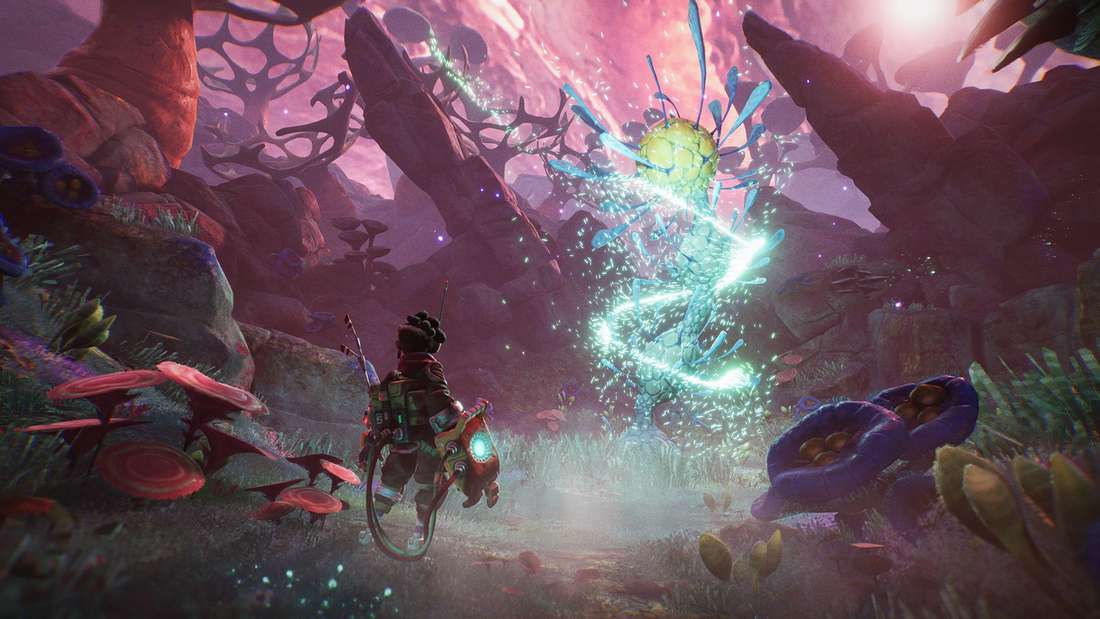Critical Underperformance: Xbox-Published ‘Keeper’ Debuts to Alarmingly Low Concurrent Player Count on Steam
Popular Now
 Auto X Drift Racing 3
Auto X Drift Racing 3
 Toca Boca World
Toca Boca World
 Fall Guys
Fall Guys
 God of War Ragnarök
God of War Ragnarök
 Free Fire
Free Fire
 Rust
Rust
 BeamNG.drive
BeamNG.drive
 Minecraft
Minecraft
 Candy Crush Saga
Candy Crush Saga
 Stumble Guys
Stumble Guys 
In a troubling development for Xbox Game Studios’ publishing strategy on PC, the latest Xbox-published title from acclaimed developer Double Fine Productions, Keeper, has debuted on Steam with a peak concurrent player count of fewer than 200 users. This news has immediately ignited debate across the PC gaming community and raised serious questions about Microsoft’s handling of smaller, more niche releases within its vast Game Pass ecosystem. The figures represent a stark contrast to the highly positive critical reception the game has received.
 Low Player Count vs. High Critical Acclaim: A Conundrum
Low Player Count vs. High Critical Acclaim: A Conundrum
Data from SteamDB indicates that Keeper, an absurdist, colorful adventure game about a walking lighthouse, reached a maximum of only 191 concurrent players shortly after its release. This figure is exceptionally low for a title published by a major entity like Xbox Game Studios, even for a non-AAA release. What makes this story particularly newsworthy is the disjunction between player interest and quality:
- Critically Praised: The game has garnered overwhelmingly positive feedback on Steam, with players and reviewers praising its unique concept and charming execution. Its Metacritic score and Steam user reviews place it firmly in the “Very Positive” category.
- High-Value Studio: Double Fine Productions is an established, highly respected studio known for titles like Psychonauts and Brutal Legend. Their games historically generate significant interest among core adventure game and indie game enthusiasts.
The core question that now drives search trends and gaming news discussion is: Why is a critically acclaimed title from a major first-party studio being missed by the wider digital entertainment market on a platform as massive as Steam?
The ‘Game Pass Effect’ and Marketing Scrutiny
Industry analysts and players are pointing toward two significant, intertwined factors: the shadow of Xbox Game Pass and a perceived failure in marketing execution by the publisher.
The Shadow of Xbox Game Pass
Keeper was a day-one release on Xbox Game Pass, making it instantly accessible to millions of subscribers on both PC and Xbox Series X/S without an additional purchase. This business model, while highly pro-consumer, fundamentally alters the purchasing behavior on platforms like Steam, where the game must be bought outright. This creates a challenging commercial environment for smaller, full-priced titles:
- No Purchase Incentive: A vast portion of the potential audience for a new Xbox-published title, especially a niche or smaller project, will opt to play it via their subscription rather than paying the $29.99 (or similar regional price) on Steam. This impacts the all-important initial Steam sales velocity, a key factor in the platform’s visibility algorithms.
- Platform Segmentation: The total player base for Keeper is undoubtedly higher when combining Game Pass downloads, but the low Steam concurrents still represent a vital economic metric. Steam revenue is pure game sale revenue, distinct from the fixed monthly subscription service income from Game Pass.
 The Marketing Misfire
The Marketing Misfire
A secondary, but equally critical, point of contention is the game’s visibility. Reports and community discussions suggest a minimal promotional campaign from Microsoft and Xbox Game Studios for this new IP, particularly targeting the specific audience segments that frequent Steam for titles outside the mainstream AAA sphere.
StrongLack of Dedicated Visibility: While the game was featured in general Xbox showcases, it seems to have lacked the focused, sustained marketing push—such as targeted Steam advertising, dedicated influencer campaigns, or a robust pre-order strategy—that a new, original property requires to succeed on a crowded storefront. This failure to generate significant pre-release hype meant that core players were simply unaware of the Double Fine release. **High CPC keywords related to “new Double Fine game” or “Keeper Steam review” were likely underutilized in the weeks leading up to launch.
Wider Implications for the Video Game Industry
The situation with Keeper is not an isolated incident and underscores a broader challenge facing publishers that rely heavily on the subscription model.
- Niche Title Visibility: If even a respected studio like Double Fine struggles to achieve traction outside of Game Pass, it raises concerns for other smaller, unique projects that Microsoft may greenlight under the banner of creative freedom. Will this low commercial performance lead to a reluctance to invest in new, original IPs in favor of more predictable sequels?
- The Steam Algorithm Challenge: Steam’s discovery features heavily favor games with high initial sales and concurrent player numbers. A poor debut, regardless of critical quality, can doom a game to poor long-term visibility. This self-fulfilling prophecy means that low concurrents can perpetuate even lower sales, leading to a permanent ‘miss’ by the majority of the PC gaming audience.
- The Economics of Originality: This case highlights the precarious balance for video game developers. While Xbox’s acquisition strategy promised creative independence, the ultimate market performance, particularly outside of the protected Game Pass environment, still matters for the financial health and perceived value of the studio.
SEO and Search Trends: A New Narrative
The controversy surrounding Keeper has created a spike in search engine traffic, but around a negative, news-driven narrative. Keywords like “Xbox exclusive Steam flop,” “Game Pass vs Steam sales,” and “Keeper player count” are suddenly attracting massive attention. This demonstrates the news cycle’s preference for controversy over quiet critical success.
For players who value unique experiences and want to support the creative freedom of studios like Double Fine, the debate is a call to action. For the industry, it’s a sobering reminder that simply having a good game is not enough; a new IP must also have a clear, dedicated, and well-executed commercial strategy to break through the sheer volume of releases in the modern gaming market.
The Keeper story will be a case study for years to come on the impact of digital distribution, the subscription economy, and the critical importance of effective marketing, even for games backed by one of the world’s largest technology and entertainment companies. While the game itself may be a small, charming lighthouse on legs, its launch metrics cast a long, cautionary shadow over the future of diverse, non-AAA game development under the umbrella of a massive publisher.









 The Marketing Misfire
The Marketing Misfire